Exotic pets have always fascinated animal lovers with their unique characteristics and behaviors. Unlike traditional pets like cats and dogs, exotic pets offer a distinctive experience that can be both rewarding and educational. This article is crafted for beginners who are fascinated by owning an exotic pet animal but unsure where to start and how to take care of exotic pets.
Here, we will explore the 10 best small exotic pets that are easy to take care of, making them perfect for beginners new to the world of exotic pet ownership.
Table of Contents
What Makes a Pet “Exotic”?
An exotic pet is typically considered to be any pet that’s not a common domesticated animal, such as cats, dogs, rabbits, or farm animals. These can include a range of species from different parts of the world.
Exotic pets often require specific care, environments, and diets that mimic their natural habitats. It’s crucial to understand the legal and ethical implications of owning such a pet, as some may be endangered or have specific regulations governing their care and breeding.
Also Read: Do Owning Exotic Animals Make Good Pets?
Considerations Before Choosing an Exotic Pet
Before diving into the world of exotic pets, it’s important to consider several factors. These animals often have specialized needs in terms of diet, habitat, and social interaction.
Prospective owners should be prepared for a long-term commitment and ensure they have the resources and time to care for their pets properly. Additionally, it’s vital to research local laws regarding exotic pet ownership, as some animals may be restricted or require special permits.
10 Best Exotic Pets That Are Easy To Take Care For Beginners [With Pictures]
Wondering about the range of exotic animals that can be your indoor companions? The options extend from macaws to several exotic lizards and from axolotls to anacondas. Read on to discover all you need to know about the top choices for exotic pets.
1. Bearded Dragon
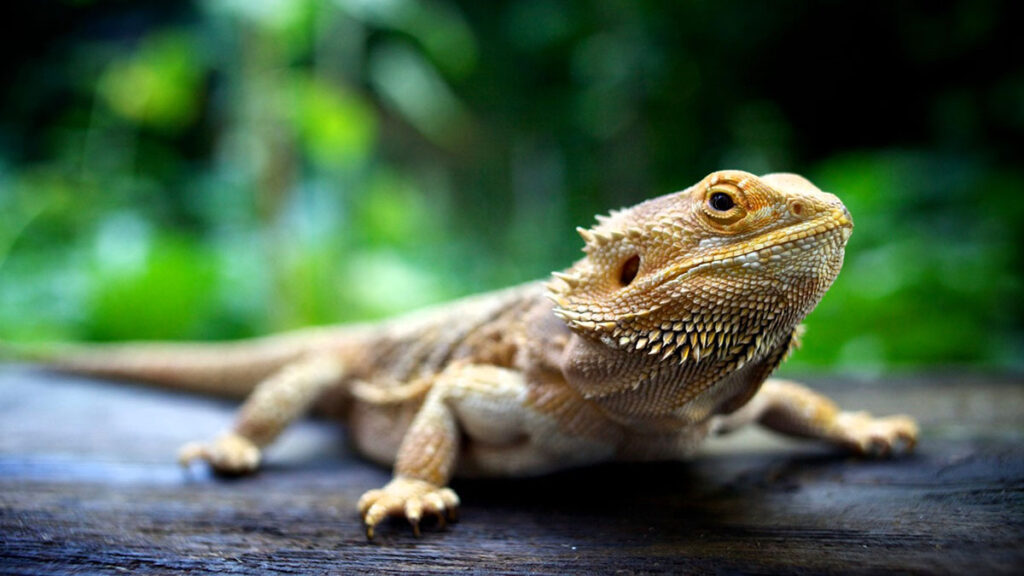
Continuing with the reptile theme, Bearded Dragons are excellent companions, known for their gentle nature and friendly disposition. With a lifespan ranging from 10 to 15 years, these creatures can thrive when provided with proper veterinary care and a suitable habitat. They require a warm habitat with UVB lighting and a diet of insects and vegetables.
2. Hedgehog
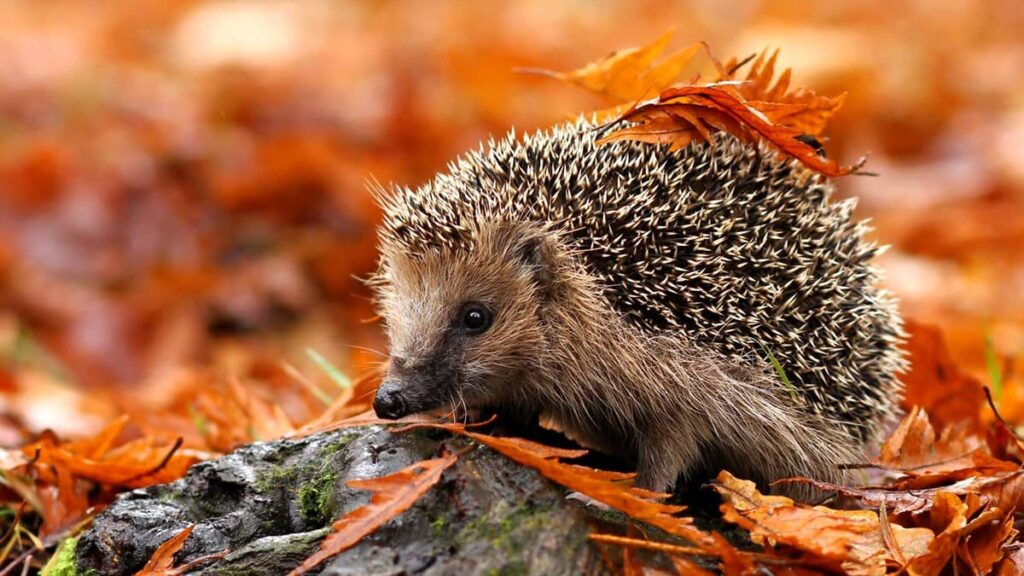
Hedgehog, this little spiny mammal, is more than just a garden adventurer! Hedgehogs can also be delightful pets, and they rank among the most low-maintenance pets when it comes to feeding. Surprisingly adaptable in their diet, they will eagerly consume almost anything offered to them, even including dry cat food. Quite the unexpected gourmet, aren’t they?
3. Leopard Gecko
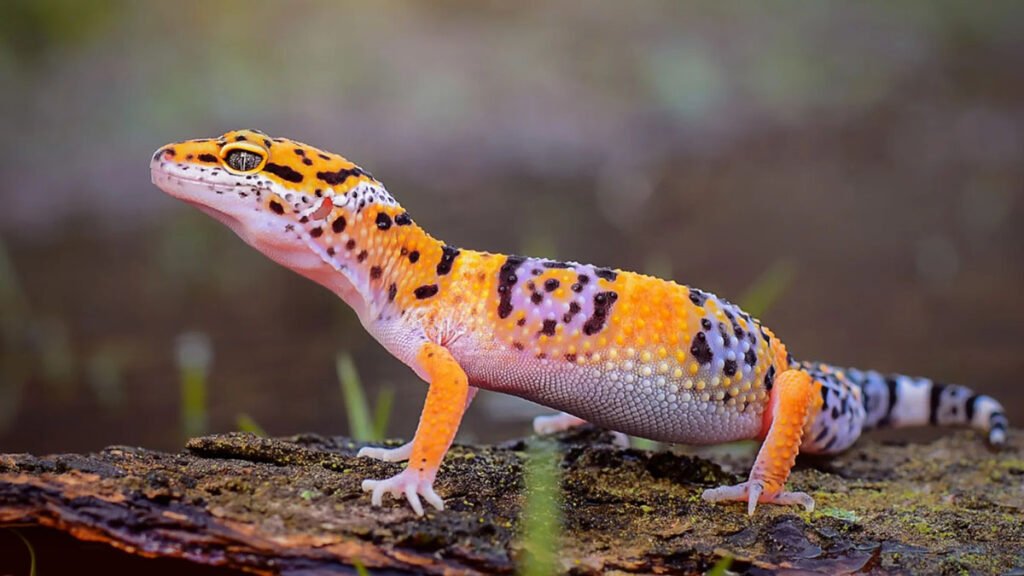
Leopard Geckos are often referred to as ‘beginner reptiles’ due to their ease of care. Ideal for those who prefer a less hands-on pet, these geckos are low maintenance, requiring a simple terrarium setup and a diet of insects. These colorful creatures are among the simplest to manage, needing far less maintenance than many other lizard species.
4. Axolotl
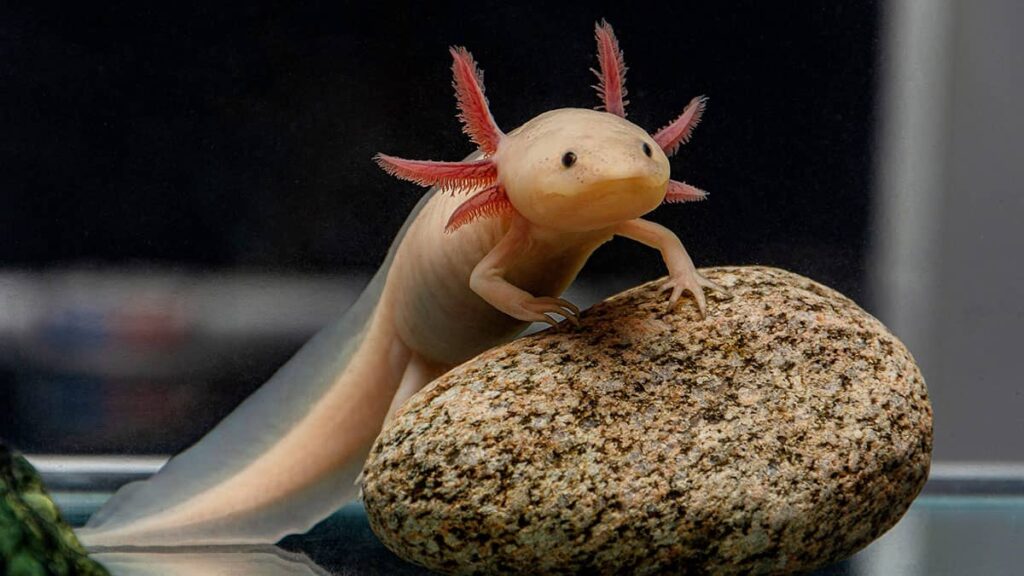
Unique and fascinating in nearly every aspect, Axolotls are celebrated for their charming smiles and distinctive appearance. Contrary to some beliefs, it’s possible to keep an axolotl as a pet in certain U.S. states. Axolotls require an aquatic habitat and a diet of small fish and invertebrates.
5. Chinchillas

If you have space to accommodate a duo, considering a pair of Chinchillas might be an ideal choice for an exotic pet beginner. Originating from the Andes Mountains, these sociable animals naturally live in groups in the wild and greatly enjoy the company of their furry counterparts, making interaction with their kind an essential part of their well-being. With their soft fur and active nature, chinchillas require a cool environment and a dust bath for fur care. Their diet includes hay, pellets, and occasional treats.
6. Sugar Glider
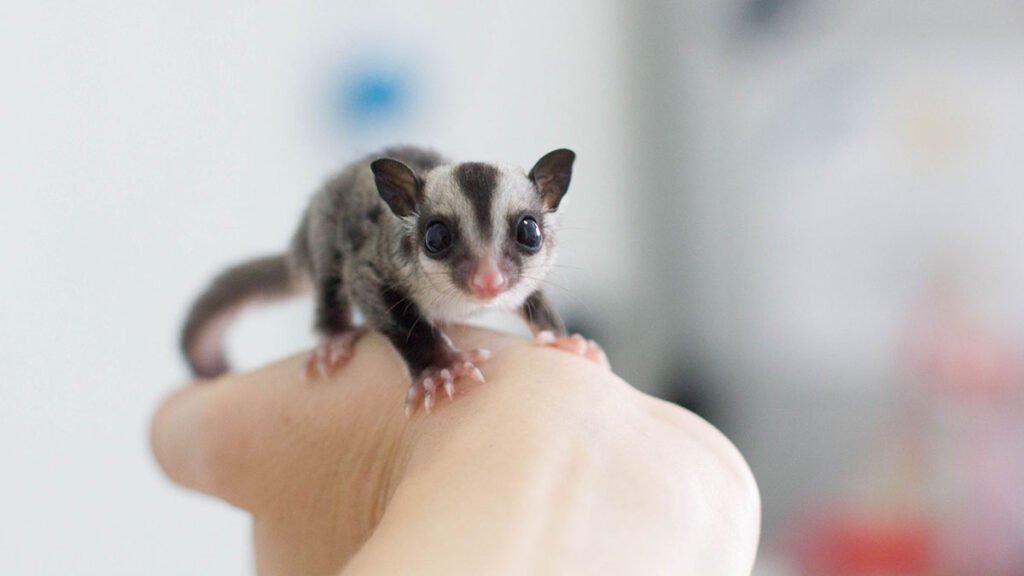
Resembling a blend of a hang-glider and a squirrel, Sugar Gliders are native to Australia. If you’re contemplating whether sugar gliders make good pets, it’s important to note that these wild marsupials need specialized care. Be sure to take this into consideration before deciding to adopt. These small marsupials are highly social and thrive in pairs. They need a diet rich in fruits, vegetables, and protein and a large cage for exercise.
7. Betta Fish
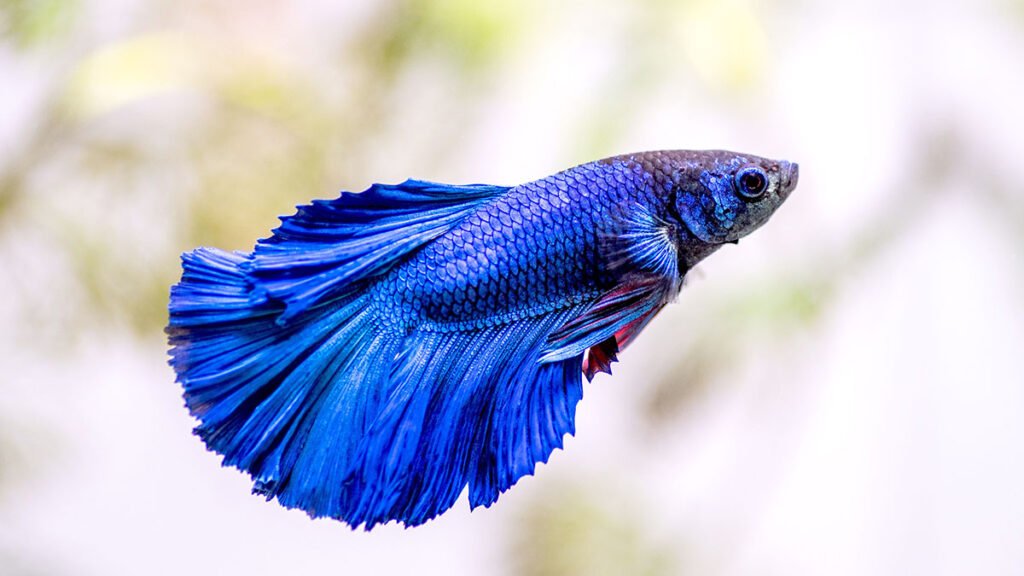
Betta Fish is vibrant and easy-to-care-for pets, ideal for both beginner and experienced aquarists. They require a small tank, warm water, and a diet of pellets and bloodworms. Known for their unique personalities, bettas can live up to 5 years with proper care.
8. Hyacinth Macaws

Hyacinth Macaws, these striking parrots, originating from Central and Eastern South America, are known for their intelligence and distinctive bold blue coloring. With a lifespan of approximately 50 years in captivity, they are social birds that thrive in pairs. Therefore, if you’re planning to adopt one, it’s advisable to prepare for accommodating a second one to keep them company.
9. Ball Python
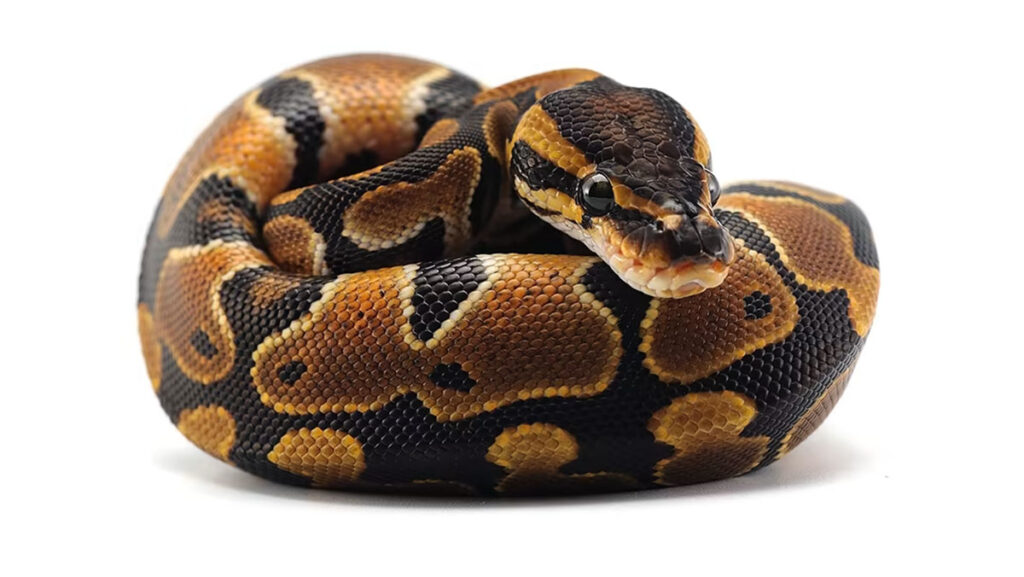
Considering adding a snake to your household? A Ball Python could be a great option. These snakes, which can grow up to five feet in length and live for as long as 50 years, are known for their relatively inactive lifestyle. To keep them content, all they require is a well-maintained enclosure, a proper diet, and fresh water.
10. Hermit Crab

Hermit Crabs are intriguing, low-maintenance pets known for their habit of living in salvaged shell homes. They thrive in a humid, temperature-controlled environment and enjoy a diet of commercial hermit crab food, fruits, and vegetables. Social and nocturnal, these crabs do best in groups and can live for several years with proper care.
Where to Get Your Exotic Pet
When looking to acquire an exotic pet, it’s important to consider ethical sources. Adopting from reputable breeders, rescue centers, or sanctuaries ensures that the animals are healthy and have been cared for properly. Avoid purchasing pet animals from dubious sources where the welfare of animals might be compromised.
Preparing for Your New Exotic Pet
Preparing the right habitat is crucial for your exotic pet’s health and happiness. Research the specific habitat needs of your chosen pet, including temperature, humidity, and space requirements. It’s also important to find a vet who specializes in exotic animals and consider pet insurance for exotic pets. Continuous learning about your pet’s needs is key to ensuring a long and healthy life.
Conclusion
Owning an exotic pet can be an immensely rewarding experience, offering a glimpse into the fascinating world of unique animals. However, it’s a responsibility that should not be taken lightly. Proper research, preparation, and commitment are essential. By choosing one of these beginner-friendly exotic pets, you can enjoy the wonders of exotic pet ownership while ensuring the well-being of your new companion.




